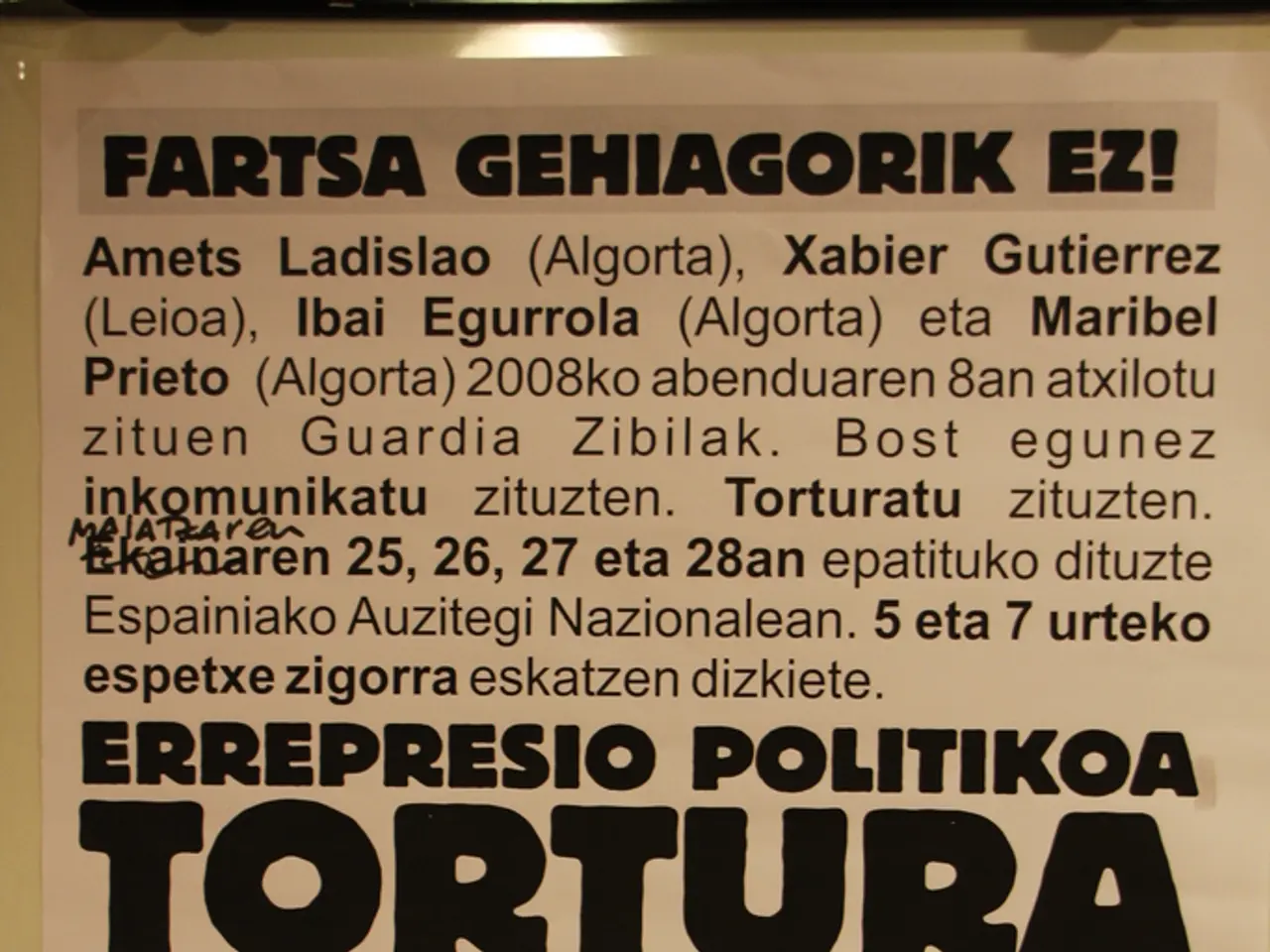Spain's Supreme Court grants amnesty to Catalan secessionists
Spain's Constitutional Court upholds amnesty law for Catalan separatists
On a hot Thursday, Spain's Constitutional Court gave a thumbs-up to key provisions of a controversial amnesty law for Catalan independence advocates implicated in 2017's failed bid for the region's independence.
More than 300 people are now off the hook, according to the law.
Prime Minister Pedro Sanchez, smirking in Brussels, held up the amnesty as a win for Spain. "This is splendid news for Spain," he declared, adding it guaranteed Spain's unity, development, prosperity, and peaceful coexistence between citizens and regions.
In 2023, Sanchez's Socialist Party cut a deal with two Catalan separatist parties, promising an amnesty in exchange for support in a parliamentary vote that kept Sanchez as prime minister following a hung parliament election.
Last year, lawmakers narrowly approved the bill, but the conservative opposition claimed it was an unconstitutional Socialist stunt.
Court confirms the amnesty's constitutionality
The Constitutional Court shot down most objections to the amnesty's constitutionality, using a vote of six to four.
"Amnesty isn't against the constitution, and its adoption when it addresses an exceptional situation and a legitimate public interest may be constitutionally permissible," the court stated, featuring a majority of judges put forward by the Socialists.
Sanchez and his party welcomed the ruling, which offered some respite in light of corruption allegations implicating senior officials.
PP leader Alberto Nunez Feijoo labeled the amnesty as a "corrupt exchange of power for impunity" and "an assault against the separation of powers."
Catalonian independence - A fractured society by the dream
(Background information)
The amnesty law for Catalan separatists emerged in the midst of a political crisis sparked by Catalonia's 2017 unauthorized independence referendum, deemed unlawful by Spanish authorities. The referendum led to charges of sedition and misuse of public funds against Catalan leaders, like Carles Puigdemont, who skipped town for Belgium to escape prosecution.
Puigdemont misses out on the amnesty benefits
The Constitutional Court ruling doesn't apply directly to Puigdemont, the exiled former Catalan separatist leader who managed Catalonia's regional administration during the 2017 referendum.
A judge handling his case stated the amnesty doesn't extend to him because he's also facing charges of embezzlement for misdirecting funds for the referendum. Puigdemont denies these accusations, and his case will likely be reviewed later this year or next.
In 2017, as Catalonia's head of government, Puigdemont orchestrated the region's unilateral secession from Spain. Madrid responded swiftly by taking direct control, deepening Spain's worst political crisis since the '70s.
- The Constitutional Court's decision to uphold the amnesty law has significant implications for Spanish politics, particularly in the realm of policy-and-legislation and the government's approach toward Catalan separatists.
- The amnesty law, opposed by conservatives as an unconstitutional ploy, has divided Spanish society, exacerbating tensions between Catalonia and the central government.
- The amnesty law's impact extends beyond those directly benefiting from it, influencing the general-news narrative and raising questions about the role of politics and its ability to address societal fractures.






